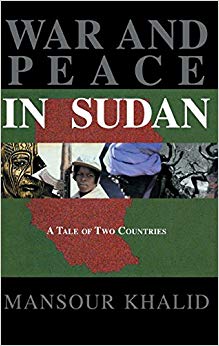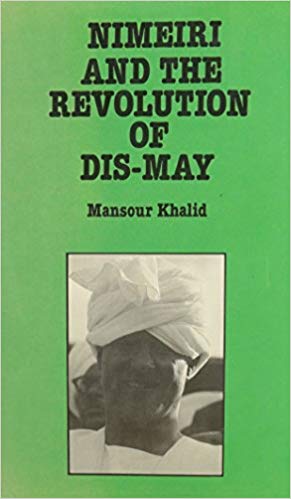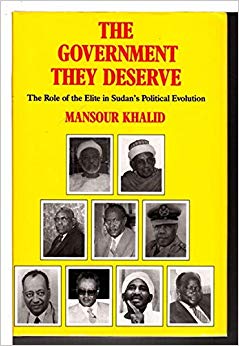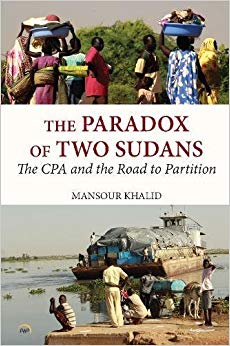Mansour Khalid is a Sudanese politician, diplomatist, and author. He has served for the nation of Sudan for many years in such capacities as Minister of Foreign Affairs, the first vice-chairman of Brundtland Commission also known as the World Commission on Environment and Development, and as the representative of the country to the United Nations.
Background
Mansour Khalid was born on January 17, 1931, at Omdurman, Sudan. He is a son of Khalid Mohammed and Sara Sawi. The boy was surrounded by relatives who were anyhow related to theology and worship. Khalid’s family managed a mosque and a madrassa, his maternal grandfather, Sheikh Ahmed Al-Sawi Abdul-Maged was associated with the Khatemiya Sufi Order, and his paternal grandfather Sheikh Mohamed Abdul-Maged supported the rival Al-Shadhiliya Sufi Order. Khalid’s uncle, Abdul-Aziz Al- Dabbagh, a fervent Sufi and poet, served as a self-determined religious scholar. All that had a profound influence on Khalid’s formation.
Education
Born in the spiritual and cultural center of Sudan, Mansour Khalid had a firm religious upbringing since his early days. After receiving general education at Omdurman’s primary and secondary schools, Mansour Khalid entered the University of Khartoum in 1951. He first joined the art department but shifted to the law one a year later.
During the time he spent at the University, Khalid became passionate about journalism. He practiced his writing skills freelancing for a number of Sudanese periodicals, such as Garidat Al-Nil, Al-Mustaqbal (The Future) and Agence France Presse. He started to learn French at the French Cultural Centre in Khartoum where he got acquainted with Jacques Berg. The latter helped Khalid to obtain a scholarship that allowed him to pursue the language studies in France. While in the country, Khalid enlarged the circle of his acquaintances, both in a professional and private way. Hassan Al-Turabi became one of his close associates for a long time.
Khalid received a Bachelor of Laws degree in 1957. It was followed by a Master of Laws from the Wharton School of the University of Pennsylvania three years later.
Khalid attended one of the Universities of Algeria in about 1963 and earned a Doctor of Philosophy degree from the University of Paris in a couple of years with a thesis on the International Regime of the Nile Waters.
Career
The start of Mansour Khalid’s career can be counted from a two-year legal practice he began in 1957. Three years later, he set up a long collaboration with the United Nations, first as a law officer at its New York City secretariat. In 1964, Khalid was sent to Algeria for a year as a deputy resident representative to help establish a UN office there.
The same year, Mansour achieved a transfer to Paris where he worked with UNESCO as an officer responsible for Arab states in the bureau of relations with member states for four years. He got acquainted with Lutfi El- Kholi, former Arab League secretary-general, Esmat Abdel-Meguid, and Ahmed Bahaaeddin. In 1968, he was granted leave of absence from UNESCO to serve as a visiting professor at the University of Colorado, lecturing on international law, comparative law, and the law of international aid.
On his return to Paris, Mansour Khalid continued his work at UNESCO until he was summoned back to Khartoum in June 1969, 10 days after the coup of President Nimeri.
From 1969 to 1971, he was a minister of youth and social affairs at the Government of Sudan, Khartoum. After the overthrow of the pro-Communist coup, President Nimeri appointed Khalid as Foreign Minister. His first priority was securing international cooperation necessary to facilitate the end of the 16-year struggle with the Southern Sudan Liberation Movement. He achieved a close understanding with the Ethiopian government and the Uganda government which paved the way for successful negotiations. The same year, Khalid fulfilled the duties of a Permanent Representative of Sudan to the UN and was appointed the president of the UN security council serving in that capacity till 1975.
Following the ratification in March 1972, he traveled extensively abroad for discussions with the United Nations Secretary-General, and various governments, particularly Britain and the United States, in an effort to raise £50 million for the rehabilitation of Southern Sudan.
Other positions that Mansour Khalid occupied in the administration of Sudan’s dictator Jaafar Nimeiri included Minister of Education (1975-1977), assistant to the president for coordination and foreign affairs (1976-1977). Khalid broke with Nimeiri in the early 1980s as his control over Sudan grew more and more extreme.
The author of several books on various concerns facing the Sudan, Mansour Khalid details the history of the Nimeiri regime in his 1985 volume, ‘Nimeiri and the Revolution of Dis-May’, and followed that with a 1990 analysis of Sudan’s government before and since Nimeiri’s fall, ‘The Government They Deserve: The Role of the Elite in Sudan’s Political Evolution’.
Khalid pursued his academic activity throughout the 1980s serving as a visiting professor at the University of Khartoum in 1982 and chairing the University Development Committee. Besides, he was involved in the United Nations Environmental Protection anti-desertification program from 1981 to 1982 as a personal representative for its executive director.
The recent book by Khalid is a 2015 volume ‘The Paradox of Two Sudans: The CPA and the Road to Partition’.
Politics
Mansour Khalid has denied the belonging to any ideological movement considering himself as a principled pragmatist.
Membership
Mansour Khalid has been a member of World Futures Studies Federation, the American Society of International Law, Vienna Institute for Development and Cooperation, and the Sudanese Socialist Union.
Personality
Mansour Khalid is tall, elegantly dressed, suave internationalist, distinguished in law and Arabic, English and French languages. Engrossed by political issues of his time, he is clever enough to be able to condense his ideas into popular terms for articles in newspapers and speeches at international meetings.















